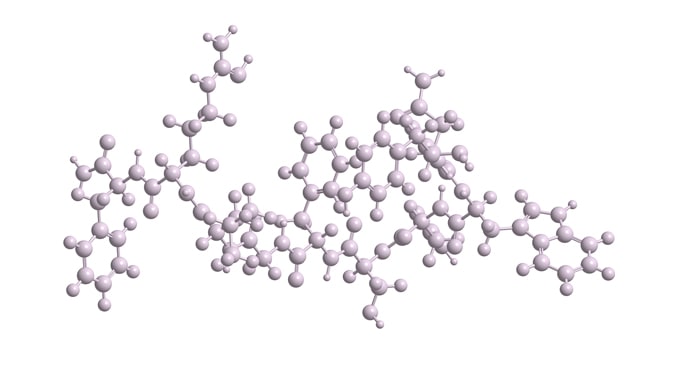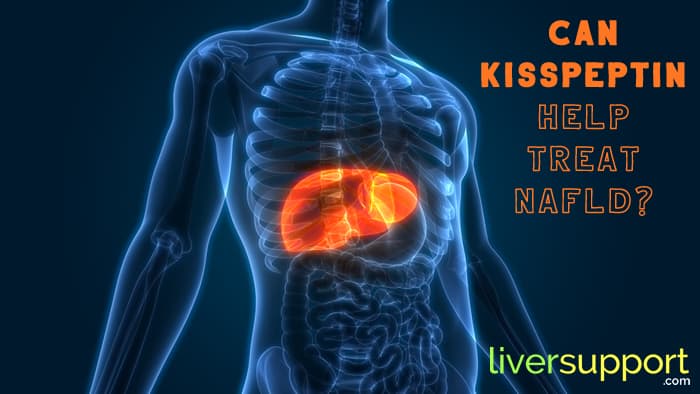
Previous
The Connection Between Menstrual Cycles and Liver Disease

Next
Mystery Liver Disease Outbreak in Young Children Around the Globe
Can Kisspeptin Help Treat NAFLD?
Learn more about kisspeptin, a naturally occurring hormone that is newly being studied for the possible treatment of NAFLD.
If you have a medical condition, your healthcare provider can often prescribe a medication to help treat it. But this remedy is not currently an option for the roughly 24% of U.S. adults who’ve been diagnosed with non-alcoholic fatty liver disease (NAFLD). That’s because there are no approved medicines for this condition. (1)
The keyword here is “currently” because new research suggests that this may change. And that a future medication might include a hormone that is already found in the human body: kisspeptin.
About the Hormone Kisspeptin
Kisspeptin is a hormone that helps regulate bodily functions associated with puberty, fertility, and reproduction. (2) It is secreted by nuclei in the hypothalamus. This is an area of the brain that produces a variety of other hormones, such as those that help control body temp, heart rate, hunger, thirst, and mood. (3)
Research indicates that kisspeptin is a peptide that is encoded by the KISS1 gene. This gene was named after Hershey’s chocolate kisses because it was initially discovered in Hershey, Pennsylvania. (4) It adds that kisspeptin must bind with certain receptors (known as KISS1R receptors) to promote changes in cellular activity, making the kisspeptin signaling pathway “essential” for puberty to begin.
Yet, one new study suggests that the kisspeptin signaling pathway might be important for another purpose. That purpose is to provide a therapeutic effect for NAFLD.
Research on the Kisspeptin Hormone and NAFLD

This new study was conducted by researchers from Rutgers Robert Wood Johnson Medical School and the Imperial College London, U.K., and the results were published in the Journal of Clinical Investigation on March 29, 2022. (5)
The subjects of this study were mice that were fed a high-fat diet. When their KISS1R receptors were deleted, liver fat worsened. Conversely, when their KISS1R receptors were stimulated, it reversed the disease and provided a protective effect while decreasing fibrosis.
Thus, researchers concluded that the kisspeptin signaling pathway and, more specifically, the KISS1R receptors may be a good therapeutic target when creating medications for the treatment of NAFLD.
This isn’t the first study connecting kisspeptin with NAFLD. For instance, a 2018 study involving adult albino rats also reported that the level of this hormone appeared to play a role in the development of NAFLD, particularly when the rodents were male. (6)
Can the Results of Animal Studies Be Transferred to Humans?
Admittedly, we are not mice or rats. So, you may be wondering whether the results of these types of studies can be transferred to humans.
The American Psychological Association shares that, as humans, we share common ancestry with certain species, namely mice, rats, and monkeys. (7) And since we have “remarkably similar” structural and functional processes, researching the processes in these types of animals can help provide a better understanding of what they might also look like in humans.
Once more is learned and a stronger connection is made, studies involving human subjects will likely occur. This can help us identify a more precise connection between kisspeptin and NAFLD within the human body, as well as what type of treatment (and treatment protocol) would be the most effective.
What You Can Do Until a Future Treatment Is Approved
Until some type of treatment is approved for NAFLD, the National Institute of Diabetes and Digestive and Kidney Diseases (NIDDKD) indicates that losing excess weight can go a long way. (8) Dropping 3-5% of your body weight can help reduce liver fat while a 7-10% reduction in body weight can help reduce liver inflammation and fibrosis.
Some all-natural products are also designed to help promote liver health. UltraThistle and Maximum Milk Thistle are two that aim to accomplish this goal by:
- protecting the liver against toxins
- detoxifying the liver
- assisting in the regeneration of healthy liver cells
- and reducing liver inflammation and oxidative stress.
It will be interesting to see where research on kisspeptin takes us. In the meantime, it offers hope that medication will be a future option for treating NAFLD, providing an additional remedy for reducing if not eliminating this disease.
(1) National Institute of Diabetes and Digestive and Kidney Diseases. (2021, April). Definition & Facts of NAFLD & NASH. Retrieved April 18, 2022, from https://www.niddk.nih.gov/health-information/liver-disease/nafld-nash/definition-facts
(2) Ahart E., Phillips, E., Wolfe, M., Marsh, C. (2021, June 7). The Role of Kisspeptin in the Ovarian Cycle, Pregnancy, and Fertility. IntechOpen: Infertility and Assisted Reproduction. doi:10.5772/intechopen.98446
(3) National Library of Medicine. (2022, April 1). Hypothalamus. Retrieved April 18, 2022, from https://medlineplus.gov/ency/article/002380.htm
(4) Cao Y., Li, Z., Jiang, W., Ling, Y., Kuang, H. (2019, August 9). Reproductive Functions of Kisspeptin/KISS1R Systems in the Periphery. Reproductive Biology and Endocrinology. doi:10.1186/s12958-019-0511-x
(5) Rutgers Today. (2022, April 7). Kisspeptin: A New Drug to Treat Liver Disease? Retrieved April 18, 2022, from https://www.rutgers.edu/news/kisspeptin-new-drug-treat-liver-disease
(6) Ibrahim, R.H., Fathy, M.A. (2018). Sexual Dimorphism in Serum Kisspeptin Level in Experimentally Induced Non Alcoholic Fatty Liver Disease in Adult Albino Rats. American Journal of Biomedical Sciences. doi:10.5099/aj180200115
(7) American Psychological Association. (2017, January. Animal Studies in Psychology. Retrieved April 18, 2022, from https://www.apa.org/ed/precollege/psn/2017/01/animal-studies
(8) National Institute of Diabetes and Digestive and Kidney Diseases. (2021, April). Treatment for NAFLD & NASH. Retrieved April 18, 2022, from https://www.niddk.nih.gov/health-information/liver-disease/nafld-nash/treatment






